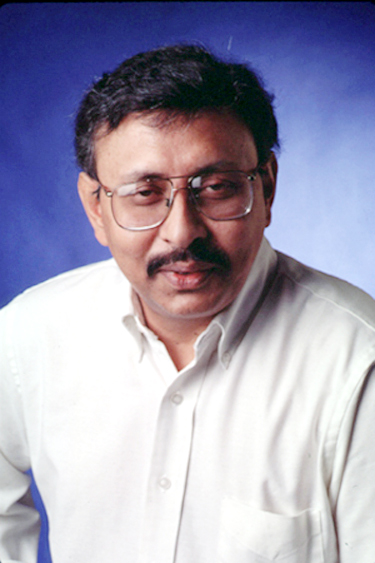Professor Asim Dasgupta wins My Last Lecture Award, offers students reflections on life

Dasgupta
By Shoshee Jau
April 7, 2010 10:17 p.m.
As Dr. Asim Dasgupta stepped out of the lecture hall for the last time of the quarter, an audible sigh from finals-takers rippled through the room.
“It’s just one of those classes that you will miss,” said Naomi Serling-Boyd, a fourth-year biochemistry student and Alumni Scholars Club Leadership Development Director.
Only an hour before, Dasgupta, professor and vice chair of the department of microbiology, immunology and molecular genetics, had walked into the room, a reassuring smile creased on his face.
“He is such a warm person,” Serling-Boyd said. “He’s always making jokes, and his warm personality just makes you want to smile. Even during the final, when he left the lecture hall, we were all sad.”
Dasgupta will be recognized by the UCLA community through the Alumni Scholars Club’s My Last Lecture Award, which will be presented April 15. The ceremony will be accompanied by an hour-long lecture by Dasgupta, in which he will share his advice to students based on his experiences as a scientist and as an individual.
“I just want to tell students what I’ve learned through the years of my life and as a scientist for 30 years,” he said. “I want to share my point of view on how they can succeed in anything.”
Raised in India, Dasgupta received his Bachelor of Science from Calcutta University and earned his Ph.D. in chemistry and biochemistry at the University of Nebraska-Lincoln. After, he worked with Dr. David Baltimore at the Massachusetts Institute of Technology as a post-doctorate fellow before joining the UCLA faculty in 1989.
Since then, he has won various awards for his research, including the American Cancer Faculty Research Award and the National Institutes of Health Career Development Award.
Yet despite his numerous accomplishments, publications and awards, Dasgupta respects his students and connects on a personal level with the classes he teaches, Serling-Boyd said.
“He was incredibly humble, never emphasizing all the many things he’s done,” she said. “He told us that we meant so much to him. He gave us freedom as students, and we respected him for that.”
While large lecture halls rarely conjure up images of intimacy, students said they found Dasgupta’s attention to detail and care for every individual a means of uniting the entire class.
“It was always the little things,” Serling-Boyd said. “Once, a student got a haircut and he pointed it out, and the whole class giggled about it. He cares deeply about his students, and he wants them to enjoy and learn and not care about the competition.”
It is this deep care for his classes that brings students to love and respect Dasgupta. He remained dedicated to his students through the quarter, even after facing his wife’s untimely death from colon cancer in January, Serling-Boyd said.
“It was a memorable moment,” Serling-Boyd said. “We were shocked at his dedication, and we didn’t think he was going to mention it, but he had a slide dedicated to his wife, and he shared about their relationship, marriage, family and (her) death. The class was absolutely silent, and we all teared up a bit.”
In the midst of a success-driven university and society, students often lose sight of the key to success, Dasgupta said. This success is born from a desire to be a good person, rather than to simply attain academic and career goals, he said.
“I tell my students to be a good human being first, and then you can be anything,” Dasgupta said. “You need to have compassion, kindness and not be judgmental. Society is very materialistic ““ people are judged by what they do as a doctor, lawyer or engineer. But that’s all secondary to being a good human being.”
Dasgupta said he realized this core value of humanity as he fought alongside his wife in her six-year battle with colon cancer. As they faced struggles together, Dasgupta said she showed him the key to happiness, even in the face of broken dreams.
“My wife was diagnosed with colon cancer in 2004,” he said. “She wanted to see her kids grow up, but she knew that her end was inevitable. I asked her how to be a better person even when facing death, and she taught me to forgive, to face mortality, to see life in a different way.”
In making decisions for his life, Dasgupta said he ultimately values “mind over matter,” the elimination of all distractions and release of one’s inner conscience. According to him, this stillness and quiet gives way to a deeper focus and passion for life.
“I do Raja Yoga, which is of the mind, not the body,” Dasgupta said. “If you watch your thoughts, you see that you have one thought after another, and a gap between them. You must focus on that gap. Focus helps with solving problems. If you do something, you do it with all your heart.”
Through his Last Lecture speech, Dasgupta will speak on his ideas of mind, matter, conscientiousness, and his personal and professional life experiences to give students a greater purpose and drive behind their daily activities, said Max Belasco, Alumni Scholars Club vice president.
“It’s an honor for him and an honor for us,” Belasco said.


